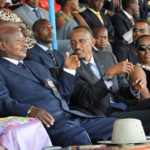Uganda has joined Extractive Industries Transparency Initiative (EITI), a global standard group promoting the openness and accountable management of oil, gas and mineral resources.
Uganda’s application to join the EITI, was approved by the organization’s board of directors, making it the 54th Member State and the 26th in Africa.
Uganda’s commitment to join the EITI was first made in the 2008 National Oil and Gas Policy and was reiterated in the updated 2012 Oil and Gas Revenue Management Policy. Participation in the EITI is also identified in the 2019-2024 Domestic Resource Mobilisation Strategy. In January 2019, the Ugandan Government approved the decision to present a candidature application, which was submitted in July 2020.
EITI Board Chair, Helen Clark, welcomed Uganda to the EITI community; “EITI implementation can help lay the foundation for transparent and accountable management of the country’s natural resource wealth. We welcome Uganda as an implementing country and look forward to the EITI promoting inclusive public debate.”
He said transparency is key to ensuring that potential revenues from oil and gas production are not mismanaged or lost to corruption. EITI implementation will require Uganda to publicly disclose information such as contracts, beneficial owners, revenues and payments, including payments related to the environment. These disclosures can in turn promote public oversight and debate.
Participation in the EITI is identified in the Government of Uganda’s 2012 Oil and Gas Revenue Management Policy as an action that will help create lasting value from oil and gas revenues. Proven reserves of over six billion barrels of crude oil have been identified in Uganda, of which 1.4 billion is currently deemed to be recoverable. Total and China National Offshore Oil Corporation (CNOOC) are active in the region and share an interest in license areas in the Lake Albert development project. If managed responsibly, expected oil revenues can contribute to national development plans such as infrastructure and social services.
Uganda’s Minister of Finance, Planning and Economic Development, Matia Kasaija, said the decision to join the EITI was informed by the appreciation of the value of transparency as we progress our plans to develop Uganda’s natural resource wealth. We believe that this initiative has the potential to strengthen tax collection, improve the investment climate, build trust among sector stakeholders and help create lasting value from our mineral and petroleum resources.
As a part of the EITI sign-up process, Uganda formed a multi-stakeholder group (MSG) in March 2019, composed of government, industry and civil society representatives.
Civil society advocacy has been an important part of Uganda’s journey to join the EITI. “Civil society has advocated the operationalisation of the policy objectives of joining EITI since the promulgation of Uganda’s National Oil and Gas Policy in 2008 and the Petroleum Revenue Management Policy in 2012,” said Onesmus Mugyenyi, Deputy Executive Director of Advocates Coalition for Development and Environment (ACODE) and a civil society member of Uganda’s Multi-Stakeholder Group.
“It is therefore our pleasure to see that the government has followed through with this policy commitment. EITI implementation provides an opportunity for deepening transparency and accountability in the management of Uganda’s oil, gas and mineral resources. I pledge our total support and commitment in ensuring that the EITI works for Uganda.”
In the wake of the Covid-19 pandemic, increased competition for investment underscores the need for transparency. While Uganda’s oil industry is still nascent, Total, a founding member of the EITI internationally and a partner in the Lake Albert Development Project, sees only benefit for Uganda in committing to the EITI. Writing in support of EITI implementation, Total E&P Uganda, an active participant in Uganda’s Multi-Stakeholder Group, underscored the importance of contract transparency in contributing to a transparent and accountable sector.
“We look forward to working with government, industry and civil society partners to support EITI implementation through participation in Uganda’s Multi-Stakeholder Group,” said Total E&P Uganda’s General Manager Pierre Jessua.
Uganda’s initial disclosures in terms of the 2019 EITI Standard will need to be made within 18 months of being admitted as an EITI implementing country.








